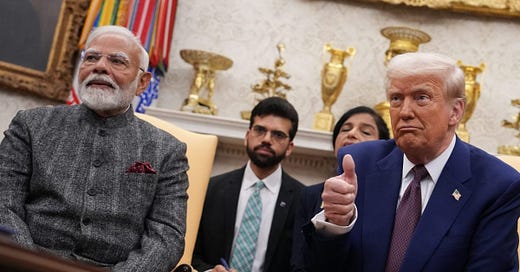Washington, D.C. - February 18, 2025
President Donald Trump has taken decisive action to address long-standing trade imbalances by announcing a policy of reciprocal tariffs. On February 17, 2025, Trump stated, "On Trade, I have decided, for purposes of Fairness, that I will charge a RECIPROCAL Tariff meaning, whatever Countries charge the United States of America, we will charge them - No more, no less!" This policy marks a significant shift towards ensuring fair trade practices where the U.S. is no longer disadvantaged.
This initiative, part of what has been described by the White House as the "Fair and Reciprocal Plan," aims to counteract the tariffs and non-tariff barriers that foreign countries have placed on American goods. By matching these tariffs, Trump is advocating for a level playing field in global trade.
While some critics express concerns about potential trade wars and increased consumer prices, these arguments overlook the broader benefits for American industry. The policy is designed to encourage countries to lower their tariffs on U.S. exports, which could lead to reduced trade deficits and revitalize American manufacturing sectors that have been hit hard by unequal trade practices.
Economists from various backgrounds have noted that this approach could force a reevaluation of trade policies globally. If countries want access to the massive U.S. market, they might be compelled to reconsider their own tariffs, potentially leading to more balanced trade relations. This isn't about starting a trade war but ending one that has been waged against American interests for decades.
The stock market's initial reaction was one of caution, with some sectors experiencing fluctuations as investors assessed the implications. However, this adjustment period is expected to stabilize as the market recognizes the strategic foresight of this policy. By ensuring that American products are not unfairly taxed by foreign nations, this policy could lead to long-term benefits for U.S. businesses, potentially increasing investment in domestic production.
Trump's move has also sparked discussions on Capitol Hill, where the policy is seen by some as a necessary step to protect American industries. Critics argue about the complexities of implementation, but supporters highlight that this approach could reinvigorate sectors like steel and agriculture, which have been pivotal in Trump's economic vision.
Internationally, reactions have been mixed, with some countries signaling readiness to negotiate trade terms to avoid higher tariffs, while others have expressed concerns. However, the underlying message from Trump's administration is clear: the U.S. will no longer accept being treated unfairly in trade.
In summary, President Trump's reciprocal tariff policy is a bold move to restore balance in global trade. It reflects his commitment to putting America first by ensuring that U.S. industries compete on equal terms worldwide. While challenges and negotiations lie ahead, this policy underscores a proactive stance in redefining America's place in the global economic landscape.



